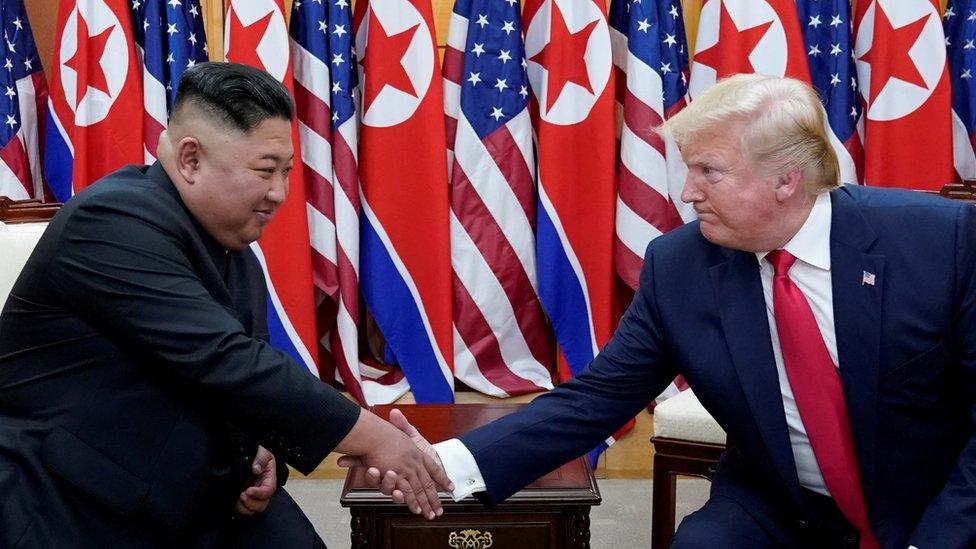Harry Harris: South Koreans bristle at US envoy's moustache
- Published
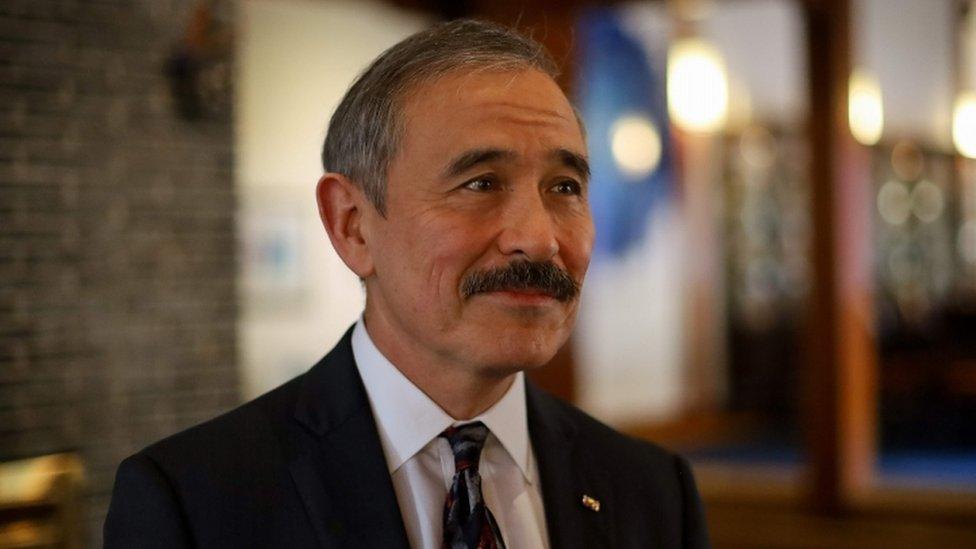
US diplomat Harry Harris has been accused of insulting South Koreans - by wearing a moustache
As relations between the US and South Korea fray, the American ambassador to the country has brushed off criticism of an increasingly hairy matter: his moustache.
Harry Harris, a retired navy admiral, has ruffled feathers in South Korea since becoming US ambassador in 2018.
But recently, it's his facial hair that has left South Koreans bristling.
To some South Koreans, it evokes memories of Japanese colonial rule over the country from 1910 until 1945.
Those who feel affronted say his facial hair is reminiscent of the moustaches worn by Japan's governor-generals in that era.
Mr Harris, the son of a US Navy officer and a Japanese mother, has previously raised tensions by demanding that South Korea pay more for hosting US troops.
But speaking to reporters on Thursday, he suggested the criticism stemmed from his heritage.
"My moustache, for some reason, has become a point of some fascination here," Mr Harris said. "I have been criticised in the media here, especially in social media, because of my ethnic background, because I am a Japanese-American."
Why the controversy over a moustache?
Mr Harris, 63, has been US ambassador at a time of heightened tensions between South Korea and Japan.
Those tensions were inflamed in November 2018, when South Korean court rulings ordered Japanese firms to pay compensation to Koreans over forced labour during World War Two.
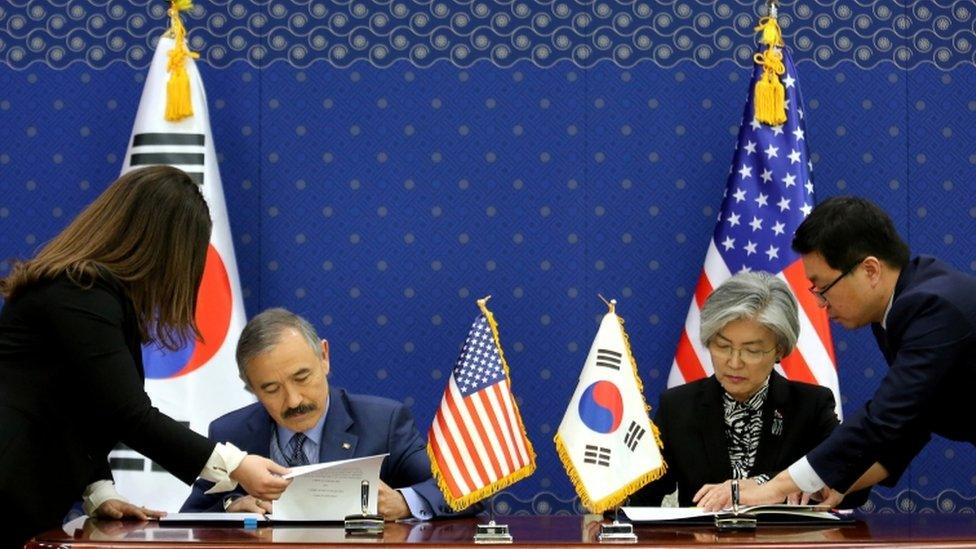
Harry Harris has been US ambassador to South Korea since June 2018
Then, in August 2019, Japan announced it was going to remove South Korea's favoured trade partner status, deepening the acrimony.
In the context of these disputes, Mr Harris's moustache - and his Japanese heritage - have become more controversial.
In an interview with a local radio station, a ruling party lawmaker compared him with a governor-general of the Japanese government during the colonial period.
That sentiment was echoed by the Korea Times, external, which last month said Mr Harris's moustache "has become associated with the latest US image of being disrespectful and even coercive toward Korea".
"Harris often has been ridiculed for not being an ambassador, but a governor-general," the paper added.
World War Two-era Japanese military leaders such as Hideki Tojo, Sadao Araki and Shunroku Hata all sported Mr Harris's type of moustache.
But so too did other regional leaders, including Chiang Kai-shek, leader of China's nationalist government between 1928 and 1949.
"In fact, it was a common style worn by a number of regional leaders at the time," Professor Niki Alsford, co-director of the International Institute of Korean Studies at the University of Central Lancashire, told the BBC.
Therefore, it seems this sentiment "is largely down to his [Mr Harris's] Japanese heritage", Prof Alsford added.
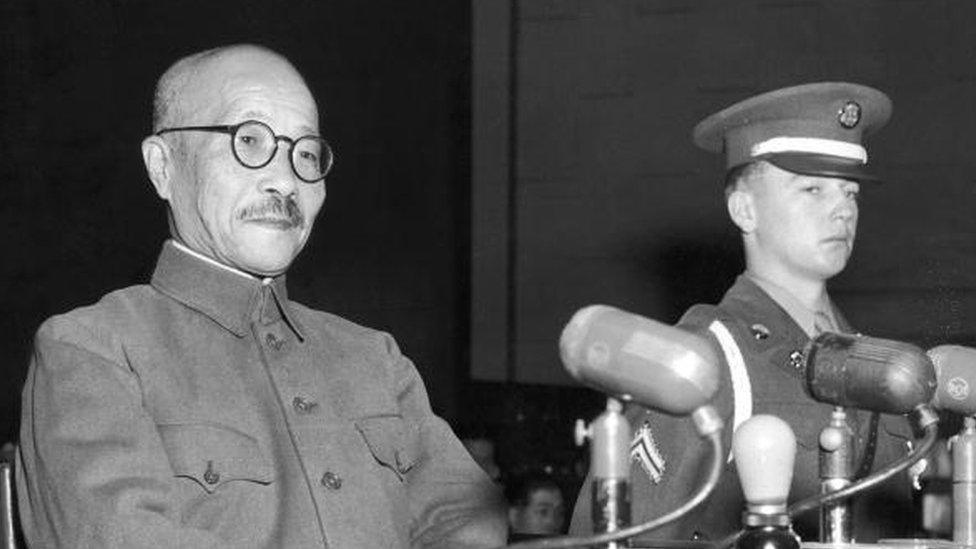
Hideki Tojo, Japan's prime minister during most of World War Two, sported a moustache
Mr Harris, who was clean-shaven for most of his 40-year naval career, told the Korea Times he had decided to grow the moustache to mark his "new life as a diplomat".
The moustache, he told the paper, would remain unless someone convinced him it was "viewed in a way that hurts our relationship".
On Thursday, he said he recognised the historical animosity between Japan and South Korea, but added it would be a mistake to "take that history and put it on me simply because of accident of birth".
Why are there tensions between the US and South Korea?
In large part, the tensions derive from US President Donald Trump's demand for South Korea to pay more towards hosting American troops on its soil.
The US stations 28,500 troops in South Korea as part of a security alliance to deter aggression from North Korea, which invaded the country in 1950.
Mr Trump said he wanted South Korea to increase its contribution from about $900m (£689m) to about $5bn.
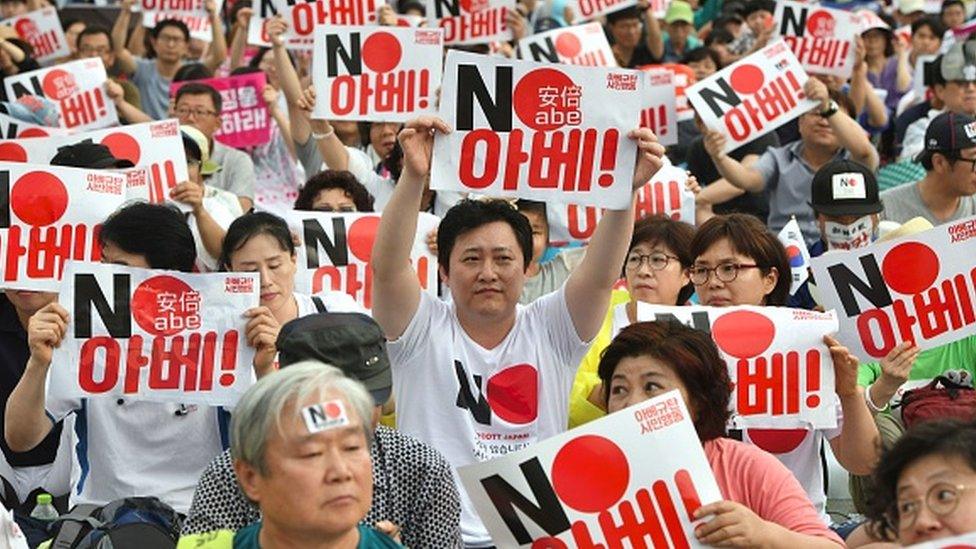
A large rally was held last year to mark the anniversary of South Korea's liberation from Japan
The latest round of negotiations concluded without agreement in Washington on Wednesday.
Mr Harris said US negotiators had "adjusted our position, our top line number" and were "now waiting for the Korean side to do the same".
There has also been consternation over South Korea's diplomatic engagements with North Korea.
Mr Trump became the first serving US president to step foot inside North Korea in 2019
Mr Harris was rebuked by South Korea's government on Thursday for suggesting that Seoul should consult Washington about the possibility of reopening tourism in North Korea.
Mr Trump and North Korean leader Kim Jong-un held face-to-face talks in 2018 and last year aimed at denuclearising the Korean Peninsula. But discussions have stalled as the US refuses to lift sanctions until North Korea fully abandons its nuclear programme.
- Published2 December 2019
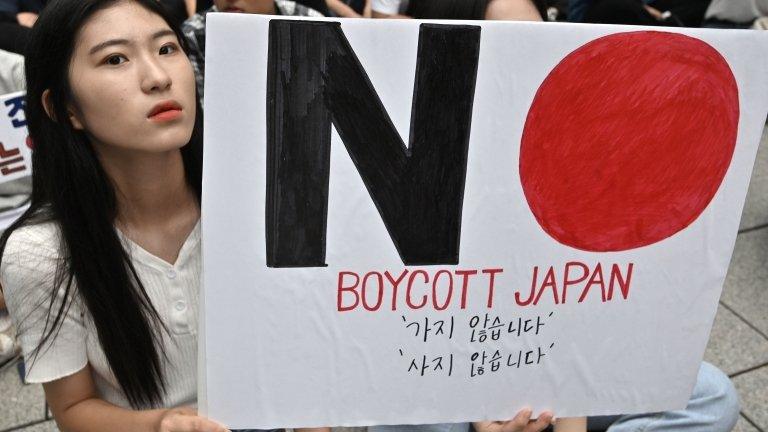
- Published12 August 2019
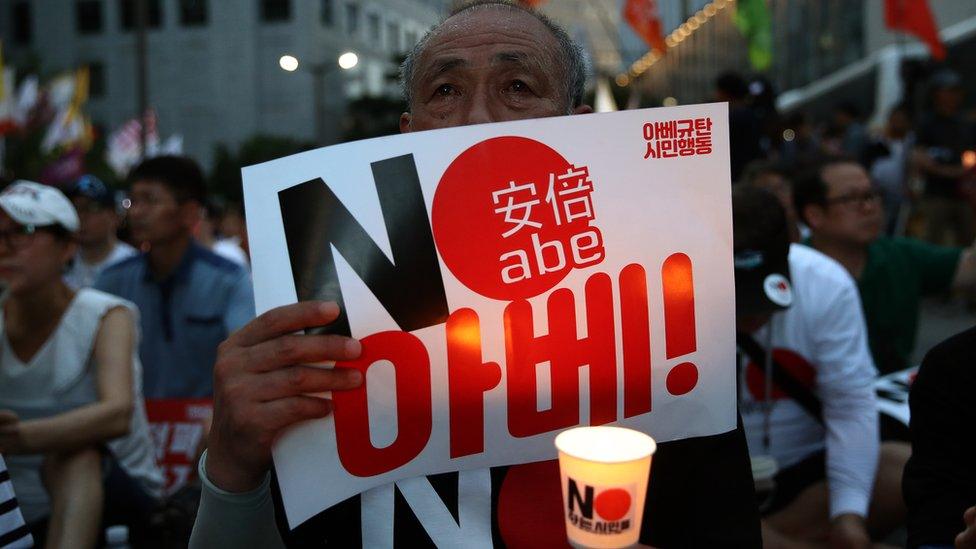
- Published11 January 2020
